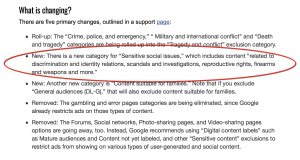
Give your social media manager the tools to succeed
If you just hired, or need to hire, a social media manager, it’s important to set them up for success to get the most out of your investment. First, make sure you hire the right person with the right skills. Social media management isn’t something you give to a low level employee as another “task.” Instead, you need someone who understands business, customer service, communications, journalism and marketing. They need to be able to write, design, edit, grow your audience, communicate your brand voice and manage a crisis with speed and authority.
If you’re in the market for a social media manager, I’ve compiled my top social media manager interview questions here so you can thoroughly assess their skills during the selection process. There are lots of people who call themselves social media managers, so be careful and thoughtful in your screening and interview process. Once you’ve selected the right candidate, provide them with the information and tools they need to grow your business. Read on for tips on managing your social media manager.
Give Them Tools to Succeed
Social Media Management Tools
There are plenty of free tools for social media management and graphic design, such as Canva, Tweetdeck, Buffer, and of course, the native platform tools like Facebook Business Manager and the built-in Creator Studio. If you are in a corporate setting, make sure their internet access allows access to these tools, and of course to the social media platforms they’ll be managing! There’s nothing worse than blocking your new hire from Facebook to get off on the wrong foot.
If you decide on a paid tool, I recommend something like Hootsuite, which offers multiple integrations for Facebook, Twitter, Instagram, LinkedIn and more in an easy to use dashboard. Later is great for Instagram, Pinterest and TikTok scheduling.
Notifications and Email
Think about creating a Google email address for them for management of tools like Google Analytics, Google MyBusiness, and user accounts on things like MailChimp. If and when they leave the company, you can deactivate that account to remove their access. Additionally, invite them to the Facebook Business manager with their corporate email address rather than giving the permissions on individual pages. This makes it much easier to manage.
Design, Video and Photography
If your new hire is versed in graphic design and you can afford the software, it’s hard to beat the Adobe Creative Cloud for design and video.
In addition to design and scheduling tools, they also need access to a great camera and some basic audio equipment if interview style videos are part of your social strategy. An affordable DSLR camera will usually do the trick for both photos and video, and a lav mic will improve the audio on most voiceover or interviews you’re planning. Your social media manager will most likely be using his or her mobile device for much of their work; however, they need desktop and photography tools too.
Define Your Goals for Social Media
Are you using social media for brand awareness, lead generation, recruiting, reputation management, customer service, or a combination of all of these? Discuss your goals and agree on a way to measure their success. Typical metrics for each of these goals would look like:
- Brand Awareness – Reach and impressions
- Recruiting – Job form fills, website visits to career posts
- Lead Generation – lead form fills, landing page visits, direct messages or comments with purchase intent.
- Customer Service – comments and questions
- Reputation management – positive reviews, de-escalating angry customers, positive sentiment engagement
Once you agree on how to measure success, you’ll have a plan in place to stay focused on reaching these goals.
Integrate Them Into Business Processes
So your new social media manager can understand and represent your business, your goals, and your mission, don’t keep them siloed. They need to be integrated into all the customer facing aspects of your business, so have them sit in with customer service teams, sales, marketing, and operations meetings so they can be part of the larger picture. Have them establish working relationships with a member of each of these teams, so they can go to them when they get a question, or are developing a post around that particular aspect of your business. Set up an approval process that isn’t bogged down with multiple layers of approvals too, as social media needs to be nimble and timely.
Pro tip: each of these team members need to be encouraged to respond quickly and take the social media role seriously. Customers on social media expect a prompt and complete answer, and don’t tolerate waiting around for hours to get what they need.
Give Them Your Brand Guide
Your social media manager will be designing graphics, crafting copy, and taking photos and videos to represent your brand online. Make sure they have a copy of your brand guide that includes the following at a minimum:
- Brand colors
- Logo use
- Fonts
- Image styles
- Copy preferences such as AP style
- Approved taglines
Get Out of Their Way
Once they have the tools, the business relationships, and the understanding of your brand, it’s important that you avoid micromanaging them. Social Media Managers are professional communicators with an understanding of the culture and voice on each specific platform. If you want them to be successful, you need to stand back and let them do their thing.
So trust, but verify.
If at first you want them to send their copy and images to you for approval to make sure they fit the personality of the company, that’s fine. They need to be crafting posts that sound like a human and not a corporate email, so be careful about your edits. Encourage them to avoid sounding like a bot in their responses and their posts. Give them the freedom to experiment, and to bring their personality to the account. The audience will teach them what works, and if a particular type of content is consistently getting more engagement, more website visits, or more conversions, support them in developing more of that type of content, whatever that looks like.
The right social media manager can add a lot of value to your business, help you grow revenue, build brand awareness and manage your reputation. Treat this as the professional career that it is, and give them the tools they need to succeed. Then stand back and watch them fly.
Digital & Social Articles on Business 2 Community
(31)





